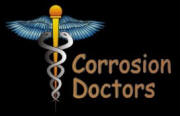Precognitive Dreams
Divination and future telling are widely accepted in the general population even if there is no scientific evidence to support the methods or results obtained in trying to foresee the future. In fact, being able to access glimpses of future timeframes defy the generally accepted notion that time is a continuously unrolling dimension in which we are present in the moment. The precognitive nature of some dreams was studied extensively in his landmark book, An Experiment with Time. In that book, following a discussion of brain function in which Dunne expounds mind-brain parallelism and highlights the problem of subjective experience, he gives anecdotal accounts of precognitive dreams which, for the most part, he himself had experienced. (reference) The first he records occurred in 1898, in which he dreamed of his watch stopping at an exact time before waking up and finding that it had in fact done so. Later dreams appeared to foretell several major disasters; a volcanic eruption in Martinique, a factory fire in Paris, and the derailing of the Flying Scotsman express train from the embankment approaching the Forth Railway Bridge in Scotland.
Dunne tells how he sought to make sense of these dreams, coming slowly to the conclusion that they foresaw events from his own future, such as reading a newspaper account of a disaster rather than foreseeing the disaster itself. In order to try and prove this to his satisfaction, he developed the experiment which gives the book its title. He wrote down details of his dreams on waking and then later went back and compared them to subsequent events. He also persuaded some friends to try the same experiment, as well as experimenting on himself with waking reveries approaching a hypnagogic state. Based on the results, he claimed that they demonstrated that such precognitive fragments were common in dreams, even that they were mixed up in equal occurrence with past memories, and therefore they were difficult to identify until after the event they foresaw. He believed that the dreaming mind was not drawn to the present, as it was during wakefulness, and was able to perceive events in the past and future with equal facility.
In his book, Limitless Mind, Russell Targ, a world reknown specialist in remote viewing, has some very interesting things to say about precognitive dreams:
"Precognitive dreams are probably the most common psychic occurrence in the life of the average person. These dreams often give us a glimpse of events that we will experience the next day or in the near future. In fact, I believe that the precognitive dream may be caused by the experience that we have at that future time. For example, if you have a dream of an elephant passing in front of your window, and you wake up the next morning to find a circus parade led by an elephant going down your street, I would say that the previous night's dream of an elephant was caused by your experience of seeing the elephant the next morning. This is an example of the future affecting the past — which isn't as strange as it sounds when you realize that we are all timeless awareness. There is an enormous body of evidence to support this model of causality. What cannot happen, however, is a future event changing the past. Nothing in the future can cause something that has already happened to not have happened."
"To know that a dream is precognitive, you must recognize that it is not caused by the previous day's mental residue, by your wishes, or by anxieties. Precognitive dreams have an unusual clarity, and they often contain bizarre or unfamiliar material. Dream experts like to speak of the preternatural (uncanny) clarity of precognitive dreams. These are not wish-fulfillment or anxiety dreams. For example, if you are unprepared for an exam and you dream about failing it, we would not consider this to be precognition but ordinary cause and effect. On the other hand, if you have taken hundreds of plane flights over many years without anxiety, then have a frightening dream about a crash, you might want to rethink your travel plans."
"A dream is only a forecast of events to come about in the future unless you do something to change them based upon the information in the dream. Such an action does not falsify the forecast. There is no paradox. In this case it is a dream about a probable future that does not become actualized. Another question might be, "How can I dream about being in a plane crash or a collision, then later find out that just such an event occurred, but without me in it?" The answer here is quite different. You dream about the real crash, in which you do not take part, and then dramatize the events in your dream to include yourself in it. We would say that the frightening crash that actually occurs can be the stimulus or cause of a dream the previous night. This is called retrocausality, and it may be the basis of most precognition."
See also: Booze and dreams, Dreams and brain disorders, Dreams as a source of inspiration, Essential oils, Food and dreams, Hypnagogic state, Neuroprotective agents, Sleeping brain, Sleep deprivation, Weed and dreams

Connect with us
Contact us today